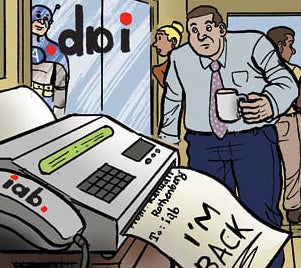DV360’s Empty Throne
One juicy narrative in ad tech is the simmering rivalry between Amazon DSP and The Trade Desk. This comes despite (or perhaps partly because of) both companies’ disavowals of any such rivalry.
“I don’t really consider them a competitor,” TTD CEO Jeff Green said about Amazon during the company’s earnings report last month.
The TTD vs. Amazon DSP rivalry is generally thought of as playing out in two markets: retail media and streaming media (or CTV). But another “long-term battlefront” between the two companies will be their development of AI-generated video features, writes New Street Research partner and equity analyst Dan Salmon in a post.
A major barrier to adoption for Amazon’s CTV and video ad ambitions is its relative dearth of a video-based creative catalogue. It has many sellers-cum-advertisers but never gave them much reason to produce video. That left its huge CTV asset, Fire TV, asking for the usual old TV agency buys instead of tapping into the Amazon demand base.
AI-generated video could be a lucrative advantage for Amazon. TTD, for now, is going the partnership route, Salmon writes, with creative automation tech vendors like Nova and Spaceback.
Apex Predator Brand
SharkNinja is an amazing case study in brand evolution.
The company, founded in 1994, was built for TV infomercials. It sold vacuums and home cleaning supplies, which became its Shark product line. In 2009, the company launched the Ninja product line of kitchen appliances.
Why not pair machines that make messy countertops with those that clean messy floors?
But many people, especially younger consumers who know the brand well, may be totally unaware of its history. SharkNinja is now so well known for its viral attention and social media savvy, as Ad Age reports, that many believe it’s a digital native.
And its new business line shows where its talent lies, in terms of generating sales. No longer is SharkNinja’s business about manufacturing things that make or clean up messes.
The company’s latest foray is a business line under the vertical SharkBeauty. The inaugural product is the CryoGlow mask, a nightmarish skin-freezing device one wears overnight.
Just as clearly as SharkNinja was originally made for infomercials – back then it was Euro-Pro Operating LLC – the company is now built for what sells in the social commerce era.
The Stuff That Sticks
Ad campaigns that stick in people’s minds for years often come from a brand seizing an organic opportunity.
Oh, and also sports.
The New York Times reports on the curious case of champagne sponsorships. It’s a fast-growing sports marketing segment primarily because, well, players spray themselves and each other with champagne after winning a championship.
Champagne brands now abound across major US sports – three years ago, the NFL created a loophole for champagne sponsors due to a ban on alcohol in locker rooms – as well as Formula 1, which traditionally does a champagne dousing after races, and tennis tournaments like the US Open, where spraying champagne is less common and champions must be enticed by ready-to-pop bottles placed near coaches and family members.
Another example is the celebratory statement “I’m going to Disney World!”
Traditionally uttered by Super Bowl champion quarterbacks, it was eventually co-opted by Disney. And for the past five years, Disney has also directly sponsored the official postgame MVP ceremony. Previously, Disney often simpyl paid both quarterbacks to guarantee the winner would say the line.
But Wait! There’s More
Why Bose paused its paid search in half of its US markets. [Adweek]
Agencies at Cannes are rebranding around AI. [Ad Age]
The Guardian bets on unified programmatic ad selling, because advertisers want curation. [Digiday]
Tech support scammers have devised a method to inject fake phone numbers into webpages when a target visits official sites for Apple, PayPal, Netflix, and other companies, per a MalwareBytes report. [Ars Technica]














